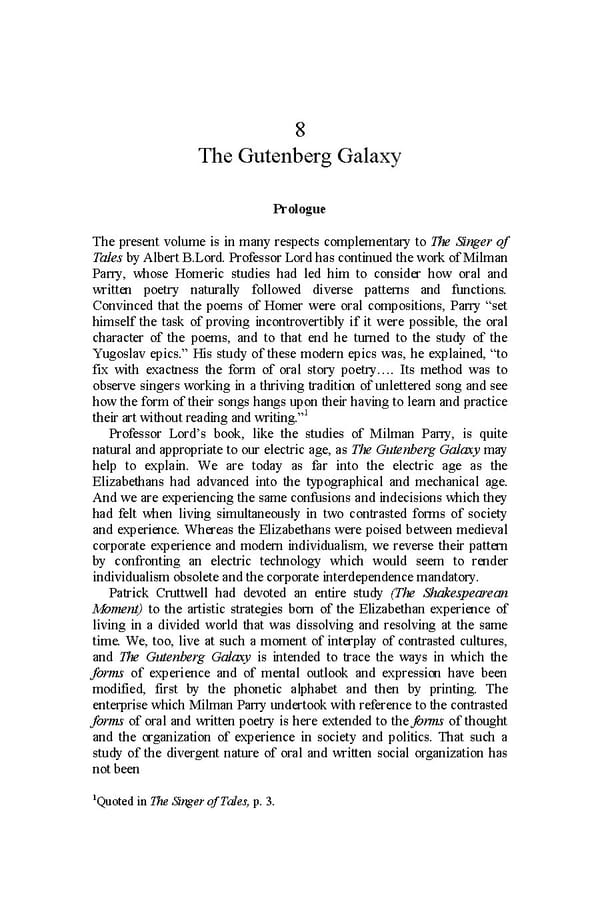8 The Gutenberg Galaxy Prologue The present volume is in many respects complementary to The Singer of Tales by Albert B.Lord. Professor Lord has continued the work of Milman Parry, whose Homeric studies had led him to consider how oral and written poetry naturally followed diverse patterns and functions. Convinced that the poems of Homer were oral compositions, Parry “set himself the task of proving incontrovertibly if it were possible, the oral character of the poems, and to that end he turned to the study of the Yugoslav epics.” His study of these modern epics was, he explained, “to fix with exactness the form of oral story poetry…. Its method was to observe singers working in a thriving tradition of unlettered song and see how the form of their songs hangs upon their having to learn and practice their art without reading and writing.”1 Professor Lord’s book, like the studies of Milman Parry, is quite natural and appropriate to our electric age, as The Gutenberg Galaxy may help to explain. We are today as far into the electric age as the Elizabethans had advanced into the typographical and mechanical age. And we are experiencing the same confusions and indecisions which they had felt when living simultaneously in two contrasted forms of society and experience. Whereas the Elizabethans were poised between medieval corporate experience and modern individualism, we reverse their pattern by confronting an electric technology which would seem to render individualism obsolete and the corporate interdependence mandatory. Patrick Cruttwell had devoted an entire study (The Shakespearean Moment) to the artistic strategies born of the Elizabethan experience of living in a divided world that was dissolving and resolving at the same time. We, too, live at such a moment of interplay of contrasted cultures, and The Gutenberg Galaxy is intended to trace the ways in which the forms of experience and of mental outlook and expression have been modified, first by the phonetic alphabet and then by printing. The enterprise which Milman Parry undertook with reference to the contrasted forms of oral and written poetry is here extended to the forms of thought and the organization of experience in society and politics. That such a study of the divergent nature of oral and written social organization has not been 1 Quoted in The Singer of Tales, p. 3.
 Essential McLuhan Page 96 Page 98
Essential McLuhan Page 96 Page 98